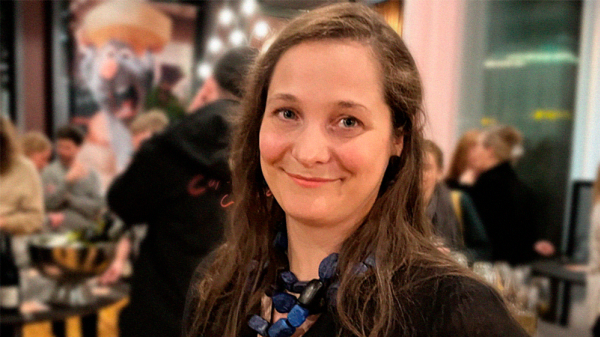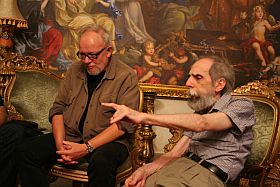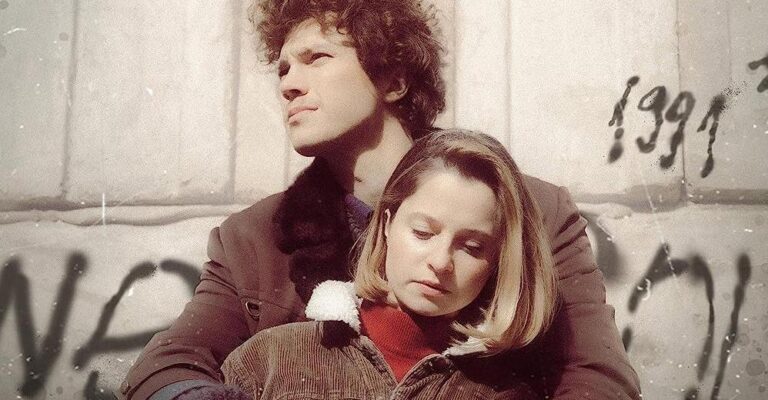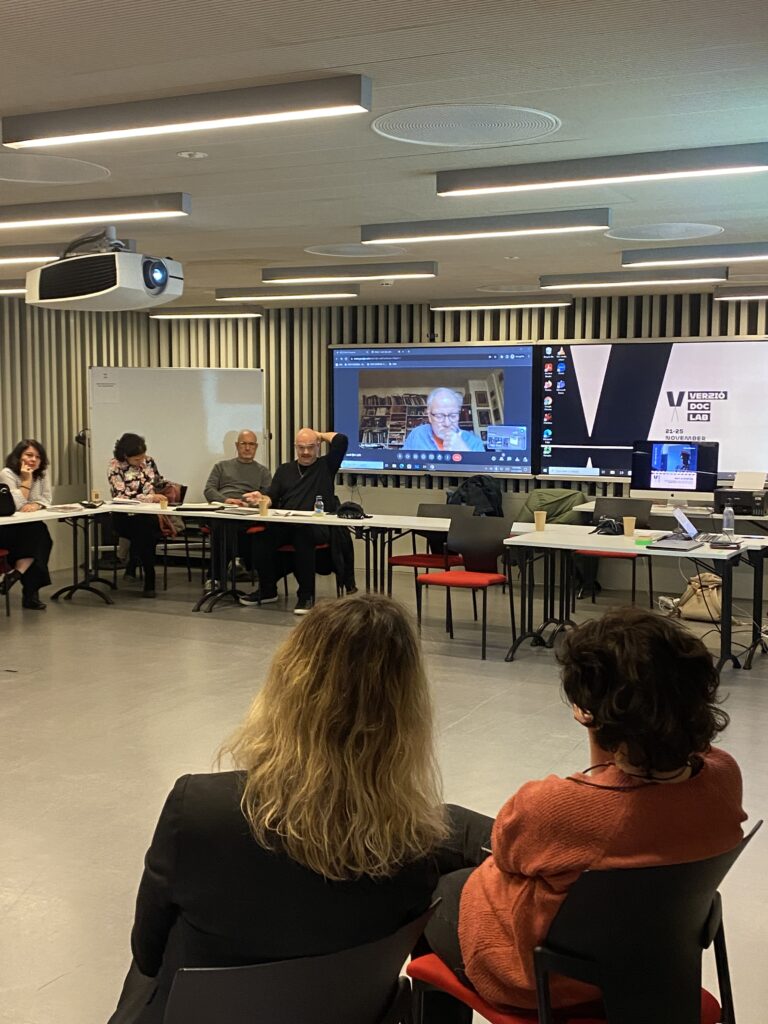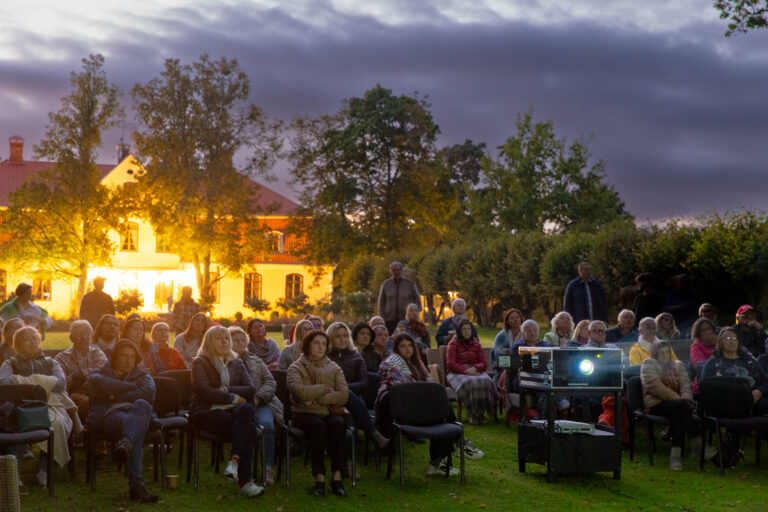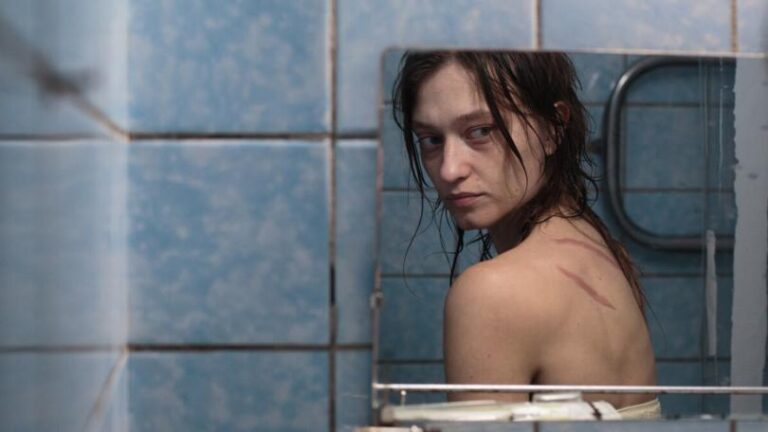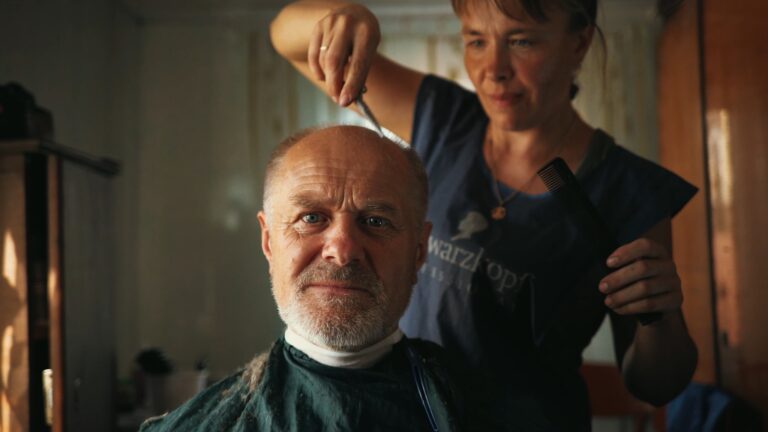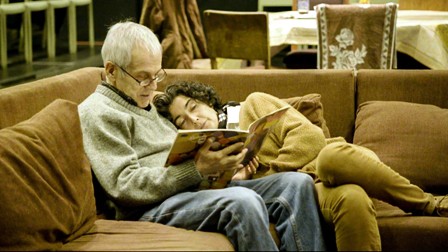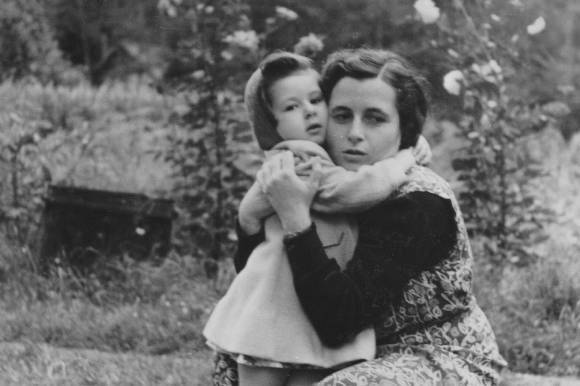


Finn Larsen: Hække og Stativer
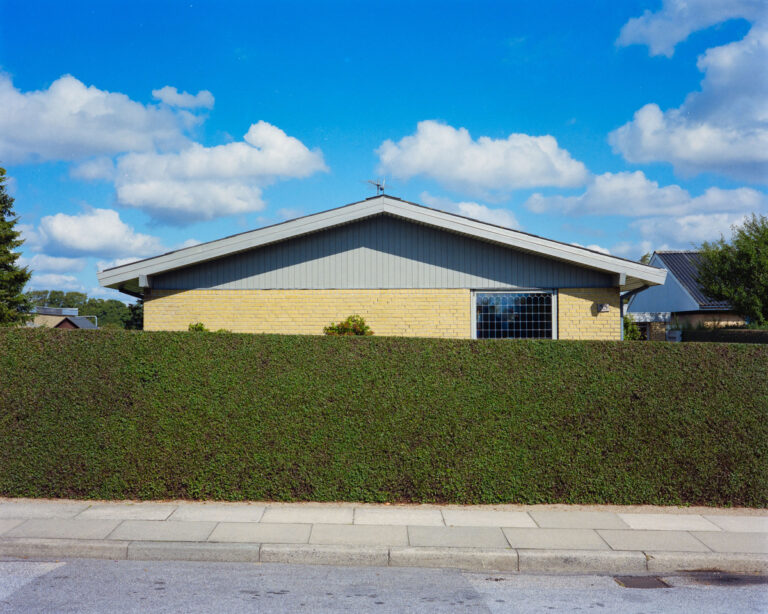
… English title Hedges and Stands… Larsen’s first topographic project, photographed in Randers in the late 1980’s, as it is said on the cover of the impressive book, one of three, two more with focus on Greenland, will come back to them, all published in 2023 with very positive reviews in Danish newspapers Weekendavisen and Politiken. I know Larsen for several years thanks to colleague at www.filmkommentaren.dk, i.e. this site, Allan Berg Nielsen, who has written several articles on Larsen – you can find them via the search logo above.
Larsen is from Randers, Allan Berg lives there, I have visited him again and again during the years of our nice “con amore” project, which is now in its 17th year, and before that, Randers was the destination due to Berg’s work at the museum, where also Larsen worked as a photographer.
It’s such a pleasure to sit with the book and browse through pages of photos of landscapes, trees in a forest, hedges and stands, nice apartment blocks, townhouses, wild bushes, well-trimmed hedges as we, my wife and I, try to have them in the allotment, blue skies, it’s all very neat and organized; Larsen has put his camera to document the ordinary, as it is said in the extra-ordinary fine text written by (in Danish and English) Sarah Giersing, where you can also find an introduction to the topographic photographic tradition that I know very little about. Do you?
Larsen puts his camera and documents. Does that mean that he has no opinion about what the motif is presented? Of course not, he knows about composition – and he knows that the photographs put together in a book create a new meaning. A meaning that not necessarily is the one that the viewer gets with the book in hand.
If you browse quickly through the book, it’s like a film that for me brings back memories. I did/do not see, what Larsen saw, when I was/am in Randers, I see people, supermarkets, small streets etc. A provincial city. At a larger scale I saw/see the same city life in Copenhagen, where I have lived most of my life, or Aarhus, and yet: Letting my mind move a bit out of the capital the photos take me back to the 70’es and 80’es, where I worked and often came to Taastrup or Hedehusene outside Copenhagen. The same as in Randers: People living behind the hedges, stands were standing waiting for laundry to be hung up, or for kids to play football using the stands as football goals, or the playgrounds to be occupied by kids full of energy and sounds of joy. This was the organized welfare society with, very often, the empty roads waiting for humans, who liked to stay behind the hedges. The proper life. Often, as Larsen documents, it is nature that takes over the empty spaces, trees and bushes kind of protest the neatness and let a viewer like me wonder, what dramas take place in the houses in the background. The book and its photographs – you see that Larsen likes what he has seen and documented – are very inviting; it’s what I remember from Taastrup and Hedehusene, but also from Aarhus’ residential small roads next to Randersvej, 30 minutes from Randers. It might not be that explicit but Larsen – with his precise aesthetic approach – interprets – and lets me interpret.
Film the ordinary but do it in an extraordinary way, take photographs of the ordinary and convey the content in an extraordinary way. This is what Finn Larsen does with his book, a photo book far from coffee table glamour, thank you! But a book that will be a book that will be leafed through, when placed on a table. Photos page by page with a Danish and English introduction in the middle of the book! Love that. Also fine poems by legendary Sven Dalsgaard… from Randers, great artist.
Finn Larsen: Hække og Stativer. 172 sider. The Architectural Publisher B
If you want to buy the book: mail@finnlarsen.se
